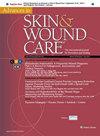Risankizumab as a Therapeutic Approach for Recalcitrant Pyoderma Gangrenosum.
IF 1.7
4区 医学
Q3 DERMATOLOGY
引用次数: 0
Abstract
Pyoderma gangrenosum (PG) is a neutrophilic dermatosis that is challenging to diagnose and treat. Clinicians frequently use fast-acting corticosteroids, which are subsequently combined with slower-acting immunosuppressants to progressively taper the corticosteroid dosage. Current research is focused on the use of monoclonal antibodies (mAbs) directed against target molecules involved in the pathogenesis of PG. However, available data on their efficacy are based on sporadic case reports and clinical experiences, so the authors aimed to evaluate the efficacy of risankizumab, an anti-interleukin-23 mAb, in the management of two complex PG cases. The authors enrolled two patients with PG who were already treated with immunosuppressive therapies. Their management was based on the off-label use of an mAb directed against the p19 subunit of interleukin-23: risankizumab. Patients received subcutaneous injections of 150 mg at the start of treatment, at week 4, and then every 10 weeks thereafter. Systemic therapy was combined with local management of ulcers, based on the principles of TIME (tissue, infection, moisture balance, and epithelialization) applied to the inflammatory and noninflammatory phases of PG. Clinical resolution was obtained at week 24 for patient 1 and week 16 for patient 2 and was maintained until week 40, without adverse effects or disease recurrence. These clinical cases demonstrate that risankizumab is a valid tool in terms of efficacy and safety for complicated cases of multirefractory PG when provided in parallel with local personalized wound management.利桑珠单抗作为难治性脓皮病的治疗方法
坏疽性脓皮病(PG)是一种嗜中性皮肤病,诊断和治疗都很困难。临床医生经常使用速效皮质类固醇激素,然后再与作用较慢的免疫抑制剂联合使用,以逐渐减少皮质类固醇激素的用量。目前的研究重点是使用针对参与 PG 发病机制的靶分子的单克隆抗体(mAbs)。因此,作者旨在评估抗白细胞介素-23 mAb(利桑珠单抗)在治疗两个复杂 PG 病例中的疗效。作者招募了两名已经接受过免疫抑制疗法治疗的 PG 患者。他们的治疗基于一种针对白细胞介素-23 p19 亚基的 mAb(利桑单抗)的标签外使用。患者在治疗开始后第4周接受150毫克的皮下注射,之后每10周注射一次。根据适用于 PG 炎症和非炎症阶段的 TIME(组织、感染、湿度平衡和上皮化)原则,全身治疗与溃疡局部治疗相结合。患者 1 和患者 2 分别在第 24 周和第 16 周临床症状得到缓解,并一直维持到第 40 周,没有出现不良反应或疾病复发。这些临床病例表明,利桑珠单抗与局部个性化伤口治疗同时使用时,在疗效和安全性方面都能有效治疗复杂的难治性 PG 病例。
本文章由计算机程序翻译,如有差异,请以英文原文为准。
求助全文
约1分钟内获得全文
求助全文
来源期刊

Advances in Skin & Wound Care
DERMATOLOGY-NURSING
CiteScore
2.50
自引率
12.50%
发文量
271
审稿时长
>12 weeks
期刊介绍:
A peer-reviewed, multidisciplinary journal, Advances in Skin & Wound Care is highly regarded for its unique balance of cutting-edge original research and practical clinical management articles on wounds and other problems of skin integrity. Each issue features CME/CE for physicians and nurses, the first journal in the field to regularly offer continuing education for both disciplines.
 求助内容:
求助内容: 应助结果提醒方式:
应助结果提醒方式:


